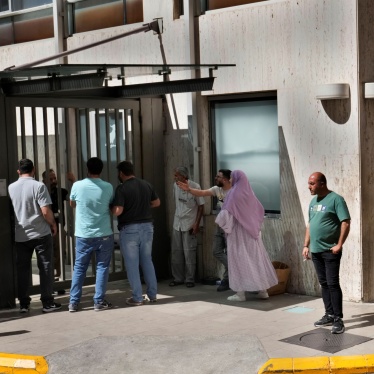Lama Fakih: Weaponizing pagers may constitute a war crime
In Lebanon, residents are asking questions that have been haunting victims in Gaza for months: Are the lives of our civilians also not protected under international law?
The rigged devices used in recent attacks have been lauded as “cutting edge” and the attacks themselves marveled at for their “precision.” But on the ground, there was widespread panic amid apocalyptic scenes: disfigured faces and amputated limbs of people in their homes, in cars and on motorcycles, walking down the street or in shops.
According to Lebanon’s caretaker minister of health, at least 37 people have been killed, including two children and four health-care workers, and nearly 3,000 others injured, including children. The casualties include those who owned the devices and those who happened to be near them when they detonated. The sheer number of those needing urgent care stretched an already beleaguered health-care system. The fear among the civilian population remains palpable. People worry that more explosions might go off, in the grocery store, on the street, at home — anywhere.
The intended targets of these widespread attacks were apparently Hezbollah members. In a statement, the group said the pagers belonged “to employees of various Hezbollah units and institutions.” They blamed the Israeli government for the explosions. And while much is still unknown about the attacks, it is clear that such attacks violate the laws of war.
Customary international humanitarian law prohibits the use of booby traps — objects that civilians are likely to be attracted to or are associated with normal civilian daily use — precisely to avoid putting civilians at grave risk. Setting off simultaneous explosives in thousands of personal devices that cannot distinguish between civilians and combatants is unlawfully indiscriminate.
U.N. human rights experts have said that the detonation of thousands of electronic devices “could constitute war crimes” and called on countries to “bring to justice those who ordered and executed these attacks.” A prompt and impartial investigation into the attacks should be conducted.
Victims of human rights violations and war crimes in Lebanon have too often been denied justice. When efforts for accountability depend on the identity of who the abusers and the victims are, the credibility of international institutions and international justice is undermined. Invariably, the first victims of double standards are civilians caught in war. But double standards also risk undermining the rules based international order we all rely on to keep ourselves safe.
Full op-ed available on the Washington Post's website.









